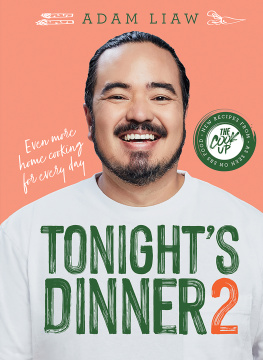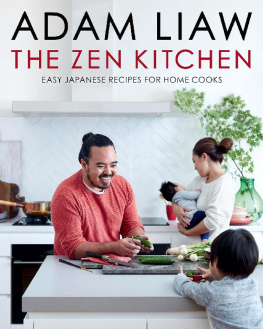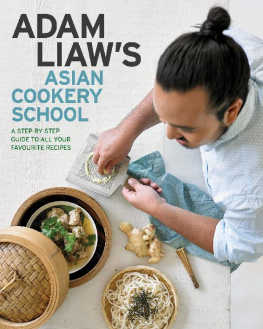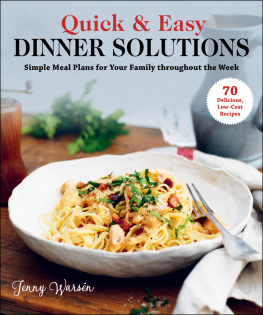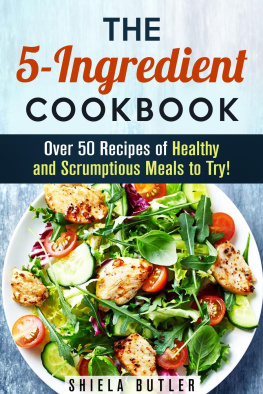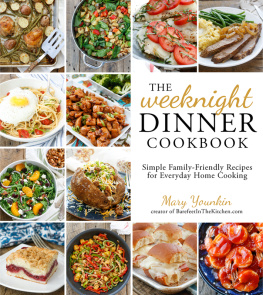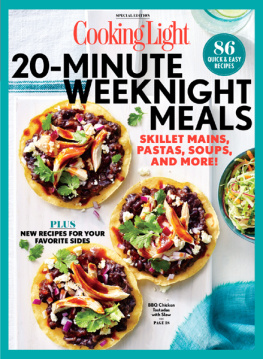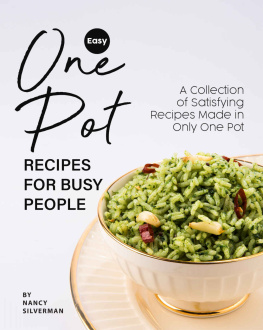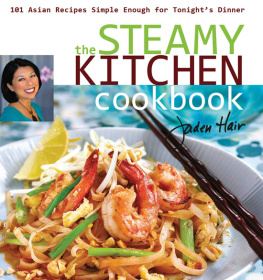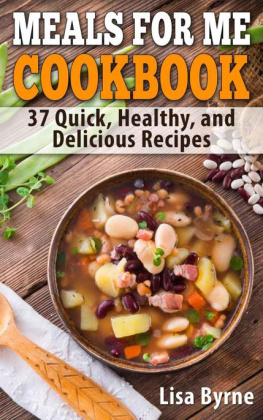
Cooking is
important.
Thats a
simple
statement,
but one
that I think
is worth
considering
closely.
Over the years, the proportion of our supermarkets devoted to
ingredients has reduced to a fraction of what it once was. The
aisles containing already- cooked food are more numerous than
ever before, a trend that probably wont change anytime soon.
Supermarkets and food manufacturers can make a lot more
money by selling you a value- added product.
For much of human existence, cooking has been a necessity.
If youre reading this book and have watched The Cook Up ,
youre likely in that relative minority of people in the world for
whom many kinds of foods are readily available, and cooking
could perhaps be considered optional. But if cooking is optional,
there must be a reason for us to decide to do it at all.
That reason might be that you enjoy it. It might be that its
cheaper for you to do it yourself than to have that need met by
a restaurant, supermarket or food corporation. It might be that
the quality you can produce at home is higher than what that
corporation would serve you in a packet. It might be that you
want greater control over what and how you eat. Or it might be
a combination of all the above plus more.
Your reasons for cooking are all your own. I cook, quite simply,
because I think cooking is important. And Im only now starting
to understand just how important it truly is.
Cooking was a hobby of mine for many years, but I no longer
consider it one. Thats not to say that I dont enjoy cooking,
because I really do ( most of the time at least). Its just that now,
the enjoyment I get from cooking sits far lower in the hierarchy
of reasons for why I choose to do it.
I have always believed that the food we eat contains within it a great
deal of information that we might otherwise struggle to understand.
The dish that will be tonights dinner on your familys table took a
very long route to get there, and I dont mean how long it took to
make. It will get to your table as a result of tens of thousands of
years of human decisions some of those decisions were yours,
The way we live today, you could almost say that it
isnt even true. After all, we can eat without cooking
quite easily. Your phone probably has a few apps
that get someone to bring you any of a thousand
dishes within an hour, if your budget allows it.

some were your forebears, and many of them were made by total
strangers who contributed to what is now a body of human wisdom.
Those decisions affected what crops to grow and how to grow
them. They affected how we understand how our bodies work
and what we need to eat to survive first, and thrive second.
They affected how we structure our economies and societies.
If you want to be a nerd about it, a plate of Spaghetti bolognese
( page ) started its journey to your table even before the
beginnings of agriculture, when our tastes guided what foods we
foraged or hunted. It adapted over millennia of trial and error as
humans had to learn what foods were good for us and what might
kill us. ( Even as recently as the 15th century, many people in Italy
thought the tomatoes we use in bolognese were poisonous, with
tomatoes only arriving around that time from the Americas.)
It would have adapted as we learned to domesticate and farm
both plants and animals. It would have travelled from Italy around
the world with waves of migration after the Second World War,
and it would have only landed on your table after we developed
the industries and systems that made those ingredients available
to you at a reasonable price and at minimal effort, plucked easily
from the shelves of your local supermarket.
My writing a recipe for it and you perhaps cooking it are just the
very last steps in an extraordinarily long journey.
The thing is, while the story of any dish might contain within it the
grandest story of all of human existence itself, it also contains
something much more personal to you. It contains your own story,
and it is being written every time you sit down at your table.
Ive always believed this, but its only recently that Ive understood
that our individual stories are told through food in ways that go to
the very heart of human nature.
Our tastes define who we are, by our biology but also by the way
we put context around the food we eat. As omnivores, humans
need to learn about food to survive, and this ability to learn
through food has become instinctive for us.
We learn about tastes even before were born. Tastes from what a
mother is eating can be passed to an unborn child, priming them
with a knowledge of what to eat once they are born into any given
environment. More tastes are passed in the mothers milk as that
child begins to grow. And it doesnt stop there. As we go through
life, we pick up the context and clues of the foods around us and
it shapes our relationship with food the same way it shapes our
relationship with people. Our relationships with food and people
are often one and the same.

As just one example, none of us like coffee as children. If a child
tastes coffee, its bitterness is immediately repulsive a biological
mechanism to warn children off something that might be
poisonous. But over time, we see our parents drink it and we see

